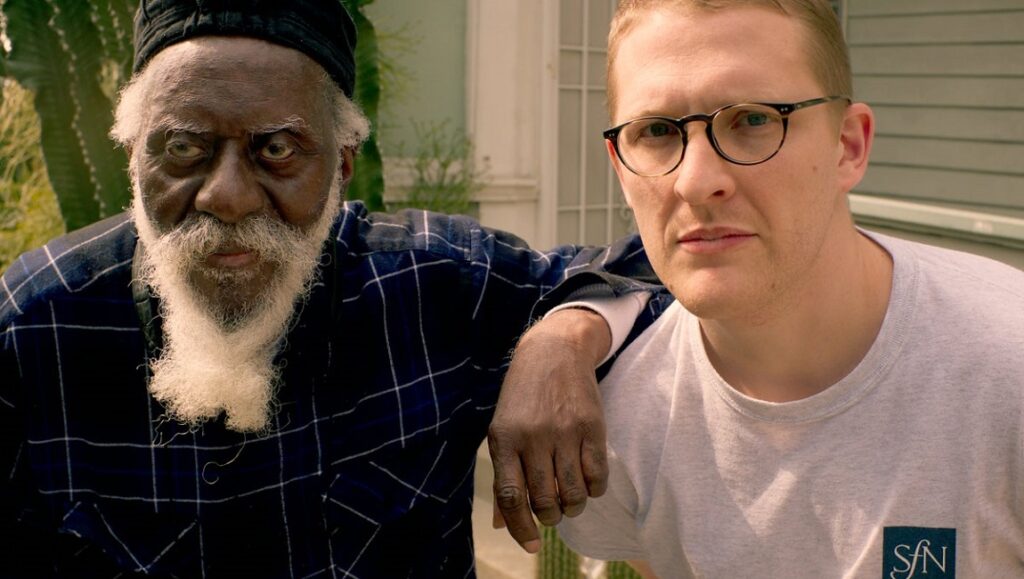Promises is a masterwork of collaboration, a suite that both teaches and bestows patience, tranquility, and openness.
Promises — a ravishing collaboration between Floating Points, Pharoah Sanders, and the London Symphony Orchestra — opens with a wisp: A bright smattering of notes played on harpsichord and celeste, wafting and twisting like a leaf in the breeze. You’ll hear that same little motif repeated over and over, and probably assume it to be a prelude of some kind; a gentle ripple across still water before something more majestic storms through. You might even make it halfway through the album before you realize that the motif is never going to evolve or resolve the way you thought it might; that it’s not a harbinger of something bigger, but rather is the thing itself. This is one of many ways in which Promises teaches you how to listen: by slowing down, resetting expectations, and clearing your mind. Every virtue that the album asks of its listener — patience, tranquility, attentiveness, an openness to discovery — it embodies with all the discipline of a zen monk. It’s possible that Promises doesn’t only teach you how to hear it; it may also be teaching you how to be a better person.
It is music of such self-possessed integrity, such quiet confidence, such utter seamlessness that to divide it into parts would be folly. Though your favorite streaming service will chop it up into nine distinct movements, Promises is very much a coherent, 46-minute suite, and there is no context in which you would ever listen to it in bits and pieces. Nevertheless, the music can’t be described without noting the contributions of each of the three principals. Floating Points is the stage name of Sam Shepherd, a British composer, DJ, and electronic music visionary. He wrote that wispy little phrase that opens the album, and lets it drift in and out of spirited jazz improvisations and robust orchestral flourishes. Though it doesn’t seem quite right to call this an electronic project — even the album’s many synths feel warm and textured, as if simulating the pleasures of acoustic instruments — Shepherd obviously carries lessons learned from ambient composition and studiocraft: Promises draws its power from its length, from its repetition, from its minimalism, and most of all from its refusal to hurry. Then there’s Sanders, recording for the first time in almost 20 years, and largely leaving the violent skronk of his early days behind him. His graceful appearances on Promises feel measured but heartfelt, conveying both the earthiness and the searching qualities of jazz in a series of prayerful improvisations. Now in his early eighties, Sanders has the bearing of an elder statesman, and experience seems to have taught him how to savor the moment rather than constantly strive: The single best episode on Promises is when Sanders drops his horn and instead starts gently scatting, with all the playfulness of a toddler discovering all the fun sounds they can make with their mouth.
The London Symphony Orchestra enters in earnest about midway through the piece, adorning but never quite subsuming Shepherd’s ambient motif with opulence, dripping emotion, brazen romance. It’s a roar of ecstasy, in the midst of an album that seldom rises above a whisper, and ultimately fades into funereal organ, and a rare moment of real extravagance. But even in its more austere moments, Promises feels generous in its bestowal of beauty and serenity. That’s something else we could all stand to learn from, and Promises is a master-teacher.
Published as part of Album Roundup — March 2021 | Part 3.


Comments are closed.